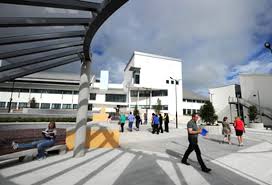Civil engineering is all about the assessment, planning, design, construction, operation and maintenance of the different types of infrastructural works that society needs, from roads and rail systems to bridges, harbours, airports, energy and utility services, and water supply schemes. It is a broad discipline which also includes structural and environmental engineering. Environmental engineers apply engineering principles to improve the quality of our environment and work towards the creation of healthy water, air and land resources.
This honours degree includes both technical and management skills and we have been very careful to maintain the correct balance between theory and practical skills, to emphasise team working and professionalism and to incorporate industry standard information technology. Graduates should be creative problem solvers who can help to shape the future.
A 12-week work placement is a central feature of the programme in year three. It’s while on placement that you really see the value of your academic learning in a real-life working environment. Your placement lays the foundations of your career path and significantly boosts your employability at the end of the course. Students have the option to graduate after year 3 with a level 7 qualification.
The emphasis in year 4 is to ensure that graduates are able to work effectively as a professional engineer and are ready to enter the workplace. This is achieved by providing a comprehensive simulated design office experience where students are working in teams, plan, design and prepare drawings for a real-life engineering project from the concept phase to the construction.


